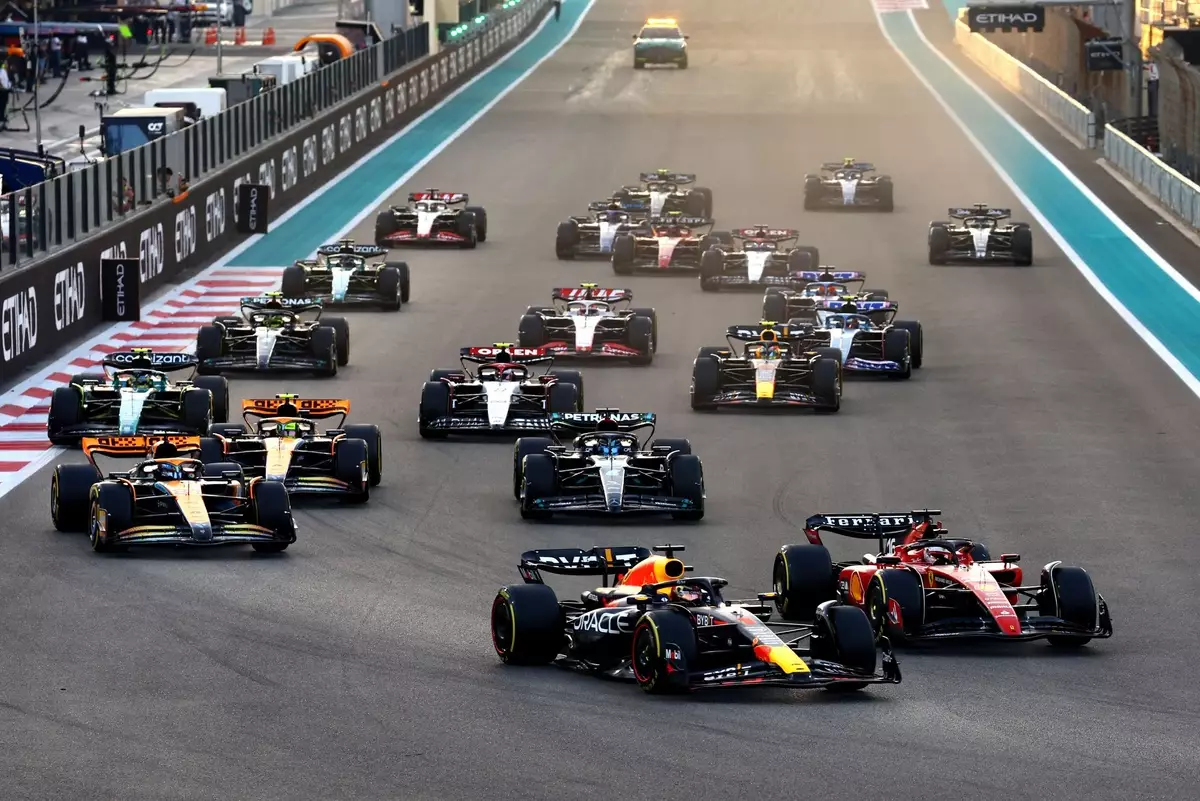Formula 1 has constantly evolved, reflecting the shifting landscapes of automotive technology and competitive strategy. Recently, discussions surrounding a proposed rookie sprint race at the Abu Dhabi post-season test highlighted both the ambitions of F1 and the complexities involved in executing new ideas within this elite motorsport. While the idea for a 10-car rookie sprint race garnered initial support, it fell victim to logistical challenges, which has sparked a deeper conversation about talent development and regulatory changes for the future.
The proposed rookie sprint race was designed to give new drivers valuable experience in contemporary Formula 1 machinery. After the season concludes with the Abu Dhabi Grand Prix, it was planned that ten of the most promising rookies would take to the track for a short qualifying session followed by a sprint race. This initiative aimed not just to entertain but to enhance the drivers’ understanding of modern F1 cars—crucial for building a successful career in the sport.
However, discussions led by the F1 Commission deemed the timeline too tight for meaningful execution of the event. Many stakeholders expressed support for the idea, yet the consensus was clear: attempting to launch such an undertaking with less than two months of preparation would likely lead to complications. With such stringent requirements in terms of logistics and organization, the decision was made to postpone the rookie race discussions to the 2025 season. This delay underlines a broader concern within F1: while innovation and development are essential, effective planning and execution remain paramount.
Understanding the 2026 Technical Regulations
While the rookie race plans may have been sidelined, the discussions surrounding the 2026 technical regulations are heating up. Balancing performance with safety and sustainability is a complex task, which was evident during recent meetings of the Technical Advisory Committee. Following feedback from teams, there has been a push for increasing aerodynamic performance compared to earlier outlines. This change underscores the sport’s ongoing commitment to innovation while responding to team concerns about the competitive impact of regulatory changes.
The revised regulations promise not only to enhance the performance of upcoming cars but also to ensure that these changes are aligned with the principles of safety. One of the notable attributes of the enhanced regulations will be a refined focus on improving the overall aerodynamic structure, aiming for cars that are both faster and safer on track.
Preparations for a New Era: Power Units and Financial Fairness
Alongside the technical revamp, financial regulations accompanying the 2026 season will evolve from existing frameworks, aiming to strike a balance between fairness and financial sustainability. The agreement on conducting three separate three-day tests ahead of the new season signifies F1’s preparedness for accommodating new entrants into the power unit arena. For teams like Audi and Red Bull-Ford, these tests will be crucial in providing them the groundwork needed to acclimatize to the new competitive ethos.
Introducing new power units into the fold opens doors to not just competitive balance but also ensures that F1 remains a relevant platform for automotive innovation. By thoughtfully revising the financial guidelines that govern team operations, the sport can foster an environment where competitiveness does not come at the price of financial ruin, thus promoting a healthier competitive landscape.
As Formula 1 presses onward into this relatively uncharted territory of new regulations and driver development initiatives, the delicate balancing act between innovation, tradition, and logistical feasibility becomes more pronounced. The largely positive response to a rookie race demonstrates a desire for change, yet the ultimate decision to postpone the initiative is a pragmatic reminder of the complexity of managing a globally recognized sport.
While the rookie race might have been postponed, the underlying intent to enhance opportunities for emerging talent in F1 remains steadfast. As the sport continues to adapt to technological advancements and evolving stakeholder interests, it is clear that the road ahead is paved with both challenges and transformative opportunities. The future of Formula 1 rests on its ability to harmonize these variables while remaining true to its core values of speed, precision, and competitiveness.


Leave a Reply